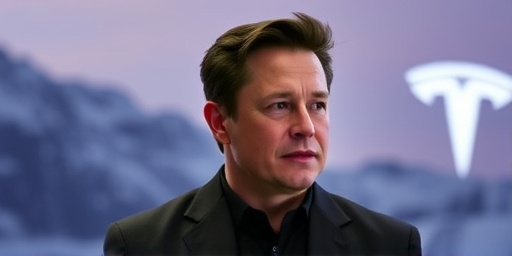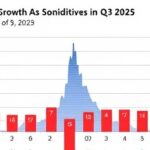In a significant blow to Elon Musk’s ambitious compensation ambitions, Norway’s sovereign wealth fund has publicly rejected the Tesla CEO’s proposed $1 trillion pay package, marking the first major institutional investor to do so. This opposition, disclosed ahead of Tesla‘s upcoming shareholder vote, underscores intensifying scrutiny over executive compensation at the electric vehicle giant and highlights evolving standards in corporate governance.
The fund, managed by Norges Bank Investment Management (NBIM), which holds a stake worth approximately $1.8 billion in Tesla, cited concerns over the package’s excessive scale and lack of alignment with shareholder interests. As one of the world’s largest investors with over $1.5 trillion in assets under management, NBIM’s stance could influence other institutional investors, potentially swaying the outcome of the vote scheduled for June 13, 2024.
Norway’s Wealth Fund Pioneers Pushback Against Musk’s Mega-Pay Plan
Norway’s Government Pension Fund Global, often dubbed the world’s largest sovereign wealth fund, has taken a firm stand against what it views as an outsized executive compensation proposal for Elon Musk. In a letter to Tesla’s board dated May 2024, NBIM expressed that the package “does not serve the interests of shareholders” and fails to meet principles of good corporate governance. This rejection is particularly noteworthy because NBIM has a history of active engagement with companies on pay issues, having voted against executive compensation at over 100 firms globally in recent years.
The fund’s decision stems from a detailed review of Tesla’s performance metrics tied to the pay deal. While acknowledging Musk’s pivotal role in Tesla’s growth—from a market cap of under $50 billion in 2018 to over $600 billion today—NBIM argued that the potential $1 trillion value, based on escalating stock performance hurdles, represents an unprecedented windfall that could dilute focus on sustainable value creation. “Executive compensation should incentivize long-term success, not create lottery-like outcomes,” a spokesperson for NBIM stated, emphasizing the fund’s commitment to responsible investing.
This move aligns with NBIM’s broader ethical investment strategy, which includes divesting from companies with poor governance practices. In 2023 alone, the fund excluded 90 firms from its portfolio due to sustainability or governance lapses. For Tesla, the opposition adds to existing pressures, as the company navigates regulatory challenges and market volatility in the EV sector.
Unpacking the Controversial $1 Trillion Compensation Structure
Elon Musk’s pay package, originally approved by shareholders in 2018, was designed as a performance-based incentive with no fixed salary. It vests in 12 tranches, each unlocking millions of stock options upon Tesla achieving specific market capitalization and operational milestones, such as revenue growth and EBITDA targets. A Delaware court voided the original plan in January 2024, ruling it unfair to shareholders due to conflicts of interest in the approval process. Tesla responded by proposing a similar, even more ambitious version that could theoretically reach $1 trillion if stock prices soar to unprecedented levels—far exceeding the $56 billion valuation of the initial package.
Critics, including NBIM, point to the package’s structure as emblematic of excessive executive compensation trends in Silicon Valley. Data from Equilar, a compensation benchmarking firm, shows that CEO pay at S&P 500 companies averaged $16.3 million in 2023, with tech leaders like Musk’s peers at Apple and Google receiving packages valued at $100-200 million. Musk’s deal dwarfs these, raising questions about proportionality. “This isn’t just about money; it’s about signaling to the market that Tesla prioritizes one individual’s wealth over collective shareholder value,” said Nell Minow, a veteran corporate governance expert and vice chair of ValueEdge Advisors.
Proponents within Tesla argue the package is justified by Musk’s transformative impact. Under his leadership, Tesla delivered a 1,200% stock return from 2018 to 2021, outpacing the S&P 500 by a factor of 10. The company reported $96.8 billion in revenue for 2023, up 19% year-over-year, with vehicle deliveries hitting a record 1.81 million units. Musk himself has tweeted in defense, stating, “This pay package is about aligning incentives for Tesla’s future success in AI and autonomy.” Yet, with Tesla’s stock down 30% year-to-date amid slowing EV demand and competition from rivals like BYD, the rationale faces renewed skepticism.
Institutional Investors Signal Shift in Tesla Oversight
The rejection by Norway’s fund is not isolated; it reflects a growing wave of institutional investors demanding transparency in executive compensation and corporate governance at Tesla. Major players like Vanguard and BlackRock, which together own about 14% of Tesla’s shares, have yet to disclose their positions but are under pressure from proxy advisory firms such as ISS and Glass Lewis. In preliminary recommendations, ISS advised against the pay package, citing its similarity to the voided 2018 plan and potential for further litigation.
According to a 2024 PwC survey, 78% of institutional investors now prioritize governance in their voting decisions, up from 62% in 2019. This shift is driven by high-profile scandals, including the ousting of Boeing’s CEO amid safety issues and ongoing probes into activist investors at Disney. For Tesla, institutional ownership stands at 45%, giving these entities significant sway. “Norway’s vote is a bellwether; expect more funds to follow if Tesla doesn’t address governance flaws,” noted Charles Elson, a professor of corporate governance at the University of Delaware.
Other institutional investors have voiced similar concerns. The California Public Employees’ Retirement System (CalPERS), with a $500 million stake in Tesla, has historically opposed Musk’s pay, voting against it in 2018 due to perceived conflicts—Musk’s brother Kimbal and other insiders served on the compensation committee. Internationally, Sweden’s AP7 fund, another major holder, echoed NBIM’s sentiments in a 2024 filing, calling for “more balanced incentives that tie pay to environmental and social goals.” These positions highlight how institutional investors are leveraging their influence to push for reforms in executive compensation practices across the tech sector.
- Key Institutional Stances: NBIM (opposed), CalPERS (likely opposed), Vanguard (undecided), BlackRock (undecided).
- Proxy Advisor Recommendations: ISS (against), Glass Lewis (leaning against).
- Tesla’s Shareholder Base: Retail investors hold 43%, potentially supportive of Musk.
Tesla’s Governance Challenges Under Musk’s Leadership
Tesla’s corporate governance has long been a flashpoint, with Elon Musk’s dual role as CEO and largest shareholder (holding about 13% of shares) creating inherent conflicts. The 2018 pay package approval was marred by allegations of inadequate board independence; the compensation committee included allies like Ira Ehrenpreis, who had prior business ties to Musk. The Delaware Chancery Court’s 2024 ruling described the process as a “textbook” example of fiduciary breach, ordering Tesla to redesign the package from scratch.
Broader governance issues at Tesla include Musk’s public behavior, such as his 2018 tweet about taking the company private, which led to SEC charges and a $40 million fine. More recently, his acquisition of Twitter (now X) diverted attention, with Tesla shareholders filing lawsuits claiming it harmed the company’s focus. A 2023 study by the Shareholder Commons Initiative found Tesla scoring below average on governance metrics, with low marks for board diversity (only 25% women) and risk oversight in areas like autonomous driving safety.
In response, Tesla has made incremental changes, such as adding independent directors like former GE CEO Jeff Immelt to its board in 2024. However, Musk’s influence remains dominant, as evidenced by the company’s push to reinstate the pay package via a shareholder ratification vote. “Corporate governance at Tesla is a tale of innovation clashing with accountability,” said Lisa Ellis, an analyst at Bernstein Research. Statistics from MSCI’s ESG ratings show Tesla’s governance score at 4.2 out of 10, lagging peers like Ford (6.1) and GM (5.8), which could deter ESG-focused institutional investors.
Executive compensation debates extend beyond Tesla. In 2023, Oracle’s Larry Ellison received a $1.1 billion package, drawing similar ire, while Disney’s Bob Iger faced backlash for a $31 million payout amid streaming losses. These cases illustrate a pattern where institutional investors are increasingly using say-on-pay votes—required for U.S. public companies since 2011—to curb excesses. At Tesla, the upcoming vote could set a precedent for how tech firms handle founder-led compensation in an era of maturing corporate governance norms.
Future Ramifications for Tesla’s Shareholder Vote and Beyond
As Tesla gears up for its June 13 shareholder meeting, the rejection from Norway’s fund amplifies risks to the pay package’s approval. Analysts estimate a 40-50% chance of passage, hinging on retail investor turnout—Musk’s ardent online following could tip the scales. A defeat might force Tesla to negotiate a scaled-back deal, potentially including caps on stock options or stronger performance ties to carbon reduction goals, aligning with institutional investors’ ESG priorities.
Looking ahead, this episode could reshape executive compensation landscapes industry-wide. With Tesla’s market cap influencing the Nasdaq, a governance win for investors might encourage bolder activism at other high-growth firms like Nvidia or SpaceX (if it goes public). “Institutional investors are no longer passive; they’re architects of change,” predicted Rosanna Landis Weaver, co-founder of As You Sow, a nonprofit focused on shareholder advocacy.
For Musk personally, the outcome bears on his net worth, estimated at $200 billion, much of it Tesla-tied. Success would reaffirm his incentive model, fueling ambitions in AI via xAI and robotics with Optimus. Failure, however, might prompt legal battles or board shakeups, testing Tesla’s resilience amid a projected 2024 EV market slowdown to 15% growth from 38% in 2023, per BloombergNEF.
Institutional investors’ growing role signals a maturing market where corporate governance is as critical as innovation. As NBIM’s opposition reverberates, Tesla faces a pivotal moment: will it adapt to shareholder demands, or double down on Musk’s vision? The vote’s results will likely influence not just executive compensation but the broader narrative of accountability in America’s tech titans.








